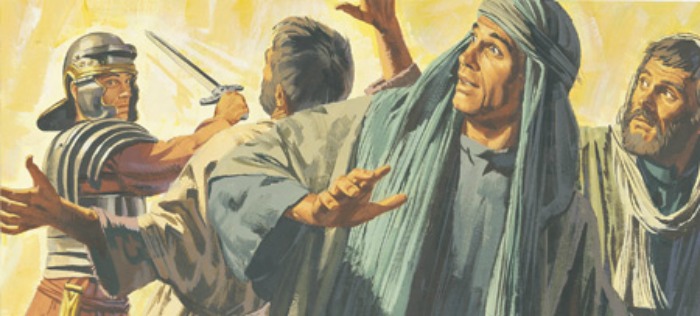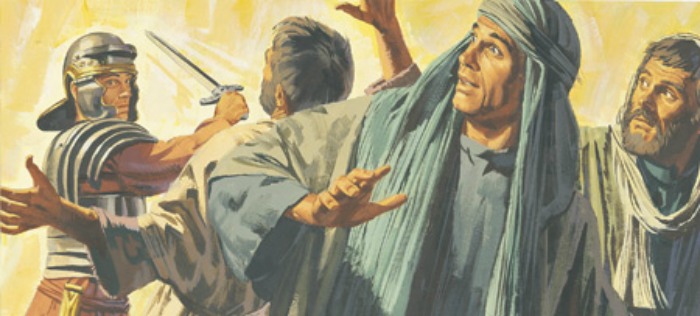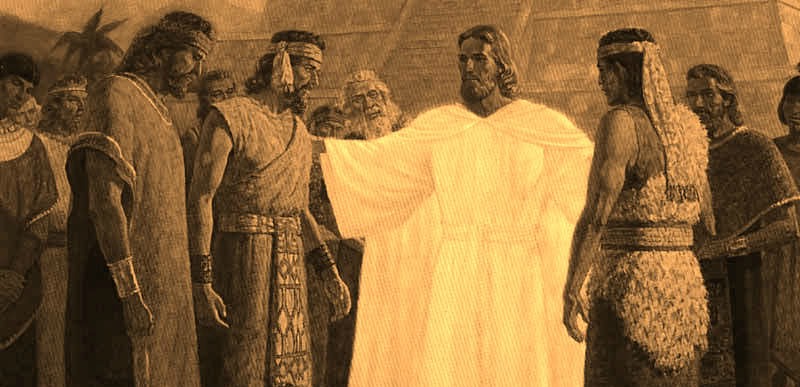Question
Hi Gramps,
I have a family member who would like me to substantiate our claim that the apostasy after the death of the apostles was complete. Are there other sources besides “The great Apostasy” by Talmage?
Rebecca
Answer
Dear Rebecca,
There are two specific sources, other than Talmage’s compendium, that reference the completion of the great apostasy. The first is the Bible, including both the Old and the New Testaments. The second is the secular history of the western world from biblical times until the time of the actual restoration. There would be no point to a restoration of the gospel if the apostasy from the truth had not been complete.
Paul refers to the restoration in the terminology of the restitution of all things in Acts 3:21. The entire passage related to the topic is shown below:
Repent ye therefore, and be converted, that your sins may be blotted out,when the times of refreshing shall come from the presence of the Lord;
And he shall send Jesus Christ, which before was preached unto you:
Whom the heaven must receive until the times of restitution of all things, which God hath spoken by the mouth of all his holy prophets since the world began.
For Moses truly said unto the fathers, A prophet shall the Lord your God raise up unto you of your brethren, like unto me; him shall ye hear in all things whatsoever he shall say unto you.
And it shall come to pass, that every soul, which will not hear that prophet, shall be destroyed from among the people.
Yea, and all the prophets from Samuel and those that follow after, as many as have spoken, have likewise foretold of these days. (Acts 3:19-24)
First, let’s look at the logic of the actuality of the great apostasy. During New Testament times bishops were ordained by the apostles to preside over the local congregations of the church, called Branches in the New Testament. The bishop was not a general officer of the church, but a local officer, having jurisdiction only over the congregation to which he was assigned.
After the death of all the apostles (except John, who was banished to the Isle of Patmos, and was therefore completely isolated from the organized church), there were no more general authorities that had the priesthood right and authority to ordain new bishops. In this circumstance, when a given bishop was confronted with a problem for which he had no solution, and would normally have sought counsel from one of the twelve apostles, he wrote a letter which was directed to, and passed from, one to another of each of the local bishops in turn, each of whom commented on the problem at hand.
When the letter had completed the cycle of bishops and was returned to the initiating bishop, he read the various comments and acted in accordance therewith according to his own best judgement. These communications are known in history as The Encyclical Letters. These encyclical letters have been formalized in the Catholic Church as
A pastoral letter written by the Pope to the entire Church, generally concerning matters of doctrine, morals or discipline, or significant commemorations. Its formal title is the first few words of its official text, usually in Latin. From the Latin encyclicus and the Greek enkyklios, circular. Encyclicals are not divinely inspired and do not contain new revelation, but they are authoritative teaching instruments from the Vicar of Christ. (The Rock Religious Shop, a non-profit entity of the Miracle of the Rosary Mission, Inc.)
The bishops ordained by the early apostles held the higher or Melchizedek Priesthood, and were authorized thereby to act officially in the name of God in all matters under their jurisdiction. But they did not have the authority to call and ordain other bishops, which was an authority held by the Twelve Apostles. Therefore, when the last bishop ordained by one of the apostles died, that ended the divine authority for man to act officially in the name of God, and the apostasy was at that point complete.
Gramps







